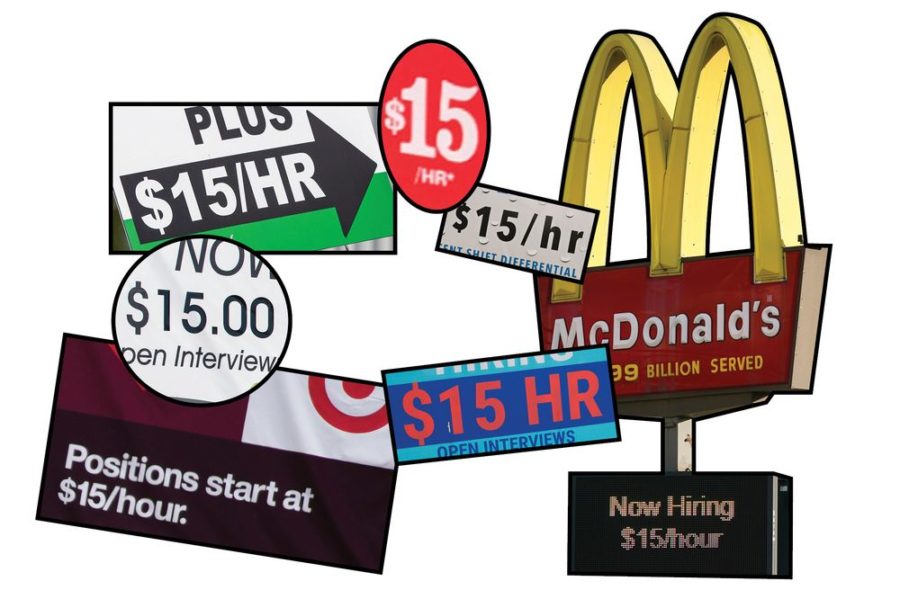California’s minimum wage is on the rise
The fight to increase the minimum wage to a livable amount has been waged for years. The minimum wage is the lowest amount an employer (the boss or the company) can pay the employee for their services (the work they do). This keeps companies accountable because they can’t get away with paying their employee the lowest possible amount. However, a problem arises when the minimum wage, the go-to amount for many employers, is too low for the employee to live off of.
Fortunately a new minimum wage has been enacted in 24 states. The minimum wage in California requires small businesses (25 or fewer employees) to pay their employees at least $14 and $15 for larger businesses (26 or more employees). Individual cities have enacted higher wages. For example, West Hollywood has the highest wages, at $17.64. Other cities have minimum wages poised to increase on July 1st (KTLA 5).
The federal minimum wage has been sitting at $7.25 for a decade, a mere half of California’s current minimum wage. Even worse, it also gives employers whose employees make tips the option to pay them just $2.13 an hour. While some states have a minimum wage even lower (Georgia and Wyoming both have minimum wages of $5.15), all states in the US are subjected to the Fair Labor Act, which means that the employers must pay at least $7.25 per hour. In addition, employers are required to pay the most beneficial wage. If they live in a city with a higher minimum wage than the state, they are obligated to pay the city’s minimum wage. However, the lower state minimum wage can affect many workers who are not included in the act (Nolo).
Without a livable minimum wage, many people find it challenging to make ends meet, especially in the pandemic. For example, some waiters usually get paid around minimum wage. This means they have to pay bills, rent, and buy groceries on their meager salaries. They make sure not to take holidays, even when they cannot work. They may also live in places where the cost of living is relatively high. However, when the minimum wage is increased, these waiters get paid enough to take a few days off and pay their bills with some money left over. They are then able to save up this money for their future. Inevitably, this money winds up back into the economy because the waiter can spend it on commercial items. This means that paying a higher wage is beneficial for corporations too.
On the flip side, a higher minimum wage may mean that small businesses will not be able to pay all their employees. Some small businesses, especially start-ups, don’t turn enough profit to make paying $15 an hour feasible. This can be detrimental to many start-ups around the country. Nonetheless, numerous studies have found that increasing the minimum wage has little effect on jobs offered (Economic Policy Institute).
With a new minimum wage, many essential workers will be able to turn their lives around and start saving up for whatever it is they may desire. Students may be able to start paying off their debt, and others can begin to start families. However, like all ideas, a new minimum wage will have consequences.
Your donation will support the student journalists of Dublin High School. Your contribution will allow us to purchase equipment and cover our annual website hosting costs.

Jiya Modh is a sophomore who is interested in the world and making a difference. She loves reading and watching TV shows. In addition, her favorite...



































